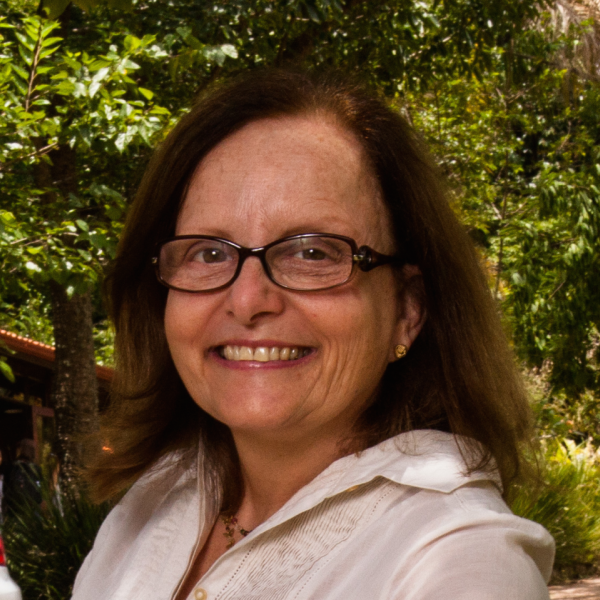Introdução
Working in Nazaré Paulista, a relatively impoverished conservation area that borders on the Atlantic Forest and is a major source of water for the city of São Paulo, Suzana Padua has developed a new model for community engagement in environmental protection.
A nova ideia
In Brazil, as in many other settings, there is growing awareness of the importance of enlisting the support of directly-affected communities in conservation initiatives, and of the need to help those communities address the economic and quality-of-life consequences of such initiatives that they, at least initially, perceive as adverse. In Suzana Padua's view, however, most programs designed with those concerns in view have two serious flaws. First, almost without exception, they are "top-down" in their approach and overly dependent on the ideas and energies of outsiders. And second, the methodologies that they employ are all too rarely subjected to careful assessment. Working through the organization that she founded and heads, Suzana is addressing both of those deficiencies. To resolve the problem of "top-down" planning in her pilot project in Nazaré Paulista, Suzana has gone to great lengths to ensure that all the specific undertakings that she and the Institute are associated with reflect the community's diagnosis of priority problems and needs, and that they are spearheaded, in a very genuine way, by local community leaders. In Suzana's view, the role of an outsider is to serve as a resource, helping the community gain access to knowledge, experiences elsewhere, and financial resources relevant to projects that the community itself develops. With regard to the need for methodological assessment, Suzana is developing an array of research, publications, and training programs. These programs are examining various approaches to environmental education and community participation in, and mobilization around, conservation endeavors throughout Brazil. She sees this component of her idea as crucial for the multiplication of community-based ecological initiatives.
O problema
In Brazil, more often than not, the creation of conservation reserves and ecological parks has created, or exacerbated, serious economic problems for neighboring communities by curtailing or prohibiting extractive activities and/or traditional agricultural practices. As a result, local populations develop an understandable hostility to the conservation areas and attempt to subvert the regulations that they impose. In an effort to combat this problem, and to convert affected communities into major stakeholders in (rather than opponents of) the conservation units, there have been numerous attempts to create participatory approaches to the management of such units and to develop new income-generating activities consistent with the purposes and success of the reserves. But most such efforts have been based on outsiders' agendas and on an inadequate understanding of the values and priorities of the local communities, and they have also been excessively dependent on the energies and skills of imported "experts." As a result, they fail to establish deep roots in the communities that they are intended to serve, and they display very limited staying power when the outside expertise is withdrawn. The problem is further compounded by the fact that most such endeavors, although well-intentioned and often brilliantly led, are inadequately assessed. As a consequence of this deficiency, and of the absence of strong institutions to share information and training activities, the lessons that they might offer are rarely available to the designers of new initiatives with similar aims. Suzana's own experience bears out this analysis. Before coming to Nazaré Paulista, she resided in another "protected area" in the state of São Paulo, the State Park of Morro do Diabo (Devil's Hill). In this setting, she worked with local community leaders to develop various "environmentally friendly" skills and income-generating projects, while attempting to instill a sense, among community members, that they were important stakeholders in the park's development. Most of the projects that she helped launch there met with considerable success, at least in the short run. But some years later, a careful evaluation of the impact and "staying power" of those initiatives revealed that several of them were overly dependent on her own ideas, energies, and contributions, and that they lost much of their vitality after her departure.
A estratégia
Suzana has since developed a multi-pronged strategy, starting in 1992 with the creation and nurturing of the Institute of Ecological Research. She initiated a pilot project in the community where the organization is based and a research program assessing that project and other environmental education/community mobilization endeavors. She then followed it up with related publication and training activities that are designed to propagate the idea embodied in the pilot project and the results of the research findings. She is building and sustaining these endeavors through unusually entrepreneurial fundraising efforts, both in Brazil and in the international arena. In order to enhance the Institute's credibility and access to both foreign and domestic funding, she moved aggressively to establish close ties with overseas organizations with similar missions. For several years, the Institute has enjoyed the support of the Wildlife Preservation Trust International, and in 1995 the two organizations entered into a formal partnership. Through this connection, the Institute is also associated with Columbia University's Center for Environmental Research and Conservation, with which the New York Zoological Society, the New York Botanical Garden, and the Museum of Natural History are similarly affiliated. The hallmark of Suzana's approach is the central role of community leaders in identifying problems and needs and developing effective responses. The project has employed, as one of its principal bridges into the surrounding communities, an innovative school-based environmental education program, which is designed to give both the students and their parents an enhanced sense of the worth of rural dwellers and of their roles in protecting the rich biodiversity of the areas in which they live. The project has also stimulated wide-ranging discussion of environmental issues in various public and private fora, and serves as a resource and point of access to the knowledge and financial resources required for the various projects that emerge from those deliberations. A key component of Suzana's strategy, both for fine-tuning that pilot endeavor and for multiplying its impact, is a systematic research program accompanying every stage and aspect of the project's development and examining other Brazilian initiatives with similar aims. The Institute has also organized a number of training programs for professionals in the environmental protection field, and Suzana dreams of using the Institute, at some future point, as the base for university degree programs in conservation and environmental protection. With financial support from Brazil's National Fund for the Environment, her institute organized a conference to explore those issues in which some 25 environmental activists, educators, and researchers participated. In October 1997 it published an edited volume presenting 21 case studies and essays on those topics.
A pessoa
Born and raised in comfortable circumstances in Rio de Janeiro, Suzana completed a bachelor's degree in visual communications at the Pontifical Catholic University of Rio de Janeiro in 1977. In the mid-1980s, after working for several years for a major television station and as a freelancer in interior design, she decided to embark on a more socially purposeful career in the field of environmental conservation and education. Together with her husband, who had arrived at a similar decision after serving as a senior corporation executive, she enrolled in a graduate program in environmental conservation at the University of Florida, where she received a master's degree in environmental education in 1991. Over the past decade, Suzana has worked in various impoverished rural communities in or bordering on "protected" conservation areas. From 1988 until 1990, she served as coordinator of environmental education in the Morro do Diabo Park of the State of São Paulo, where she first became intimately acquainted with the needs and creative potential of such communities, and where the ideas incorporated in her current work first began to germinate. In addition to her work at the Institute, she has served as the part-time director of the Brazil Program of Wildlife Preservation Trust International. She offers short courses on environmental conservation and education in various parts of Brazil and has frequently been employed as a consultant to Brazilian and international agencies and organizations active in that field, including the Brazilian National Fund for the Environment, the World Wildlife Fund, The Nature Conservancy, and the World Bank. A member of the Education and Communication Committee of the International Union for Conservation of Nature and Natural Resources and of the Board of Directors of the Society for Conservation Biology, she has also authored numerous articles for newspapers and professional journals in addition to the recent book noted above.




